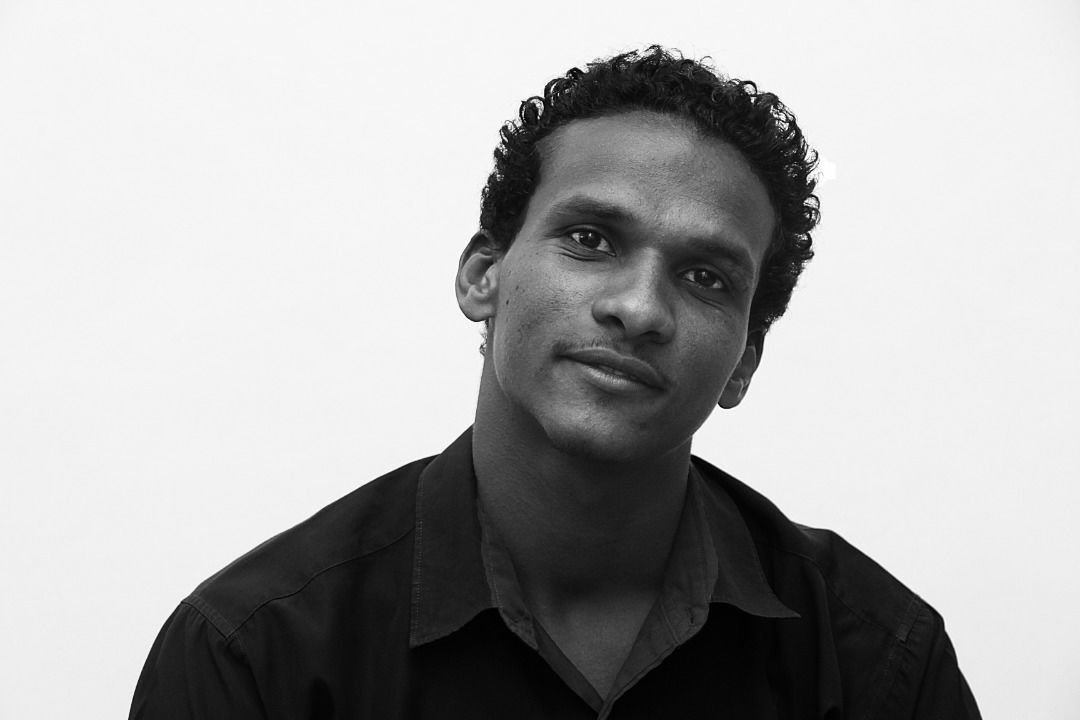El Obied is the birthplace of Sufism in Sudan and the path to Sufi domes, as Hirans or Sheikh Followers say, is driven by prayers, anticipation, and eagerness to meet with the Sheikh or the Wali as they call him. People believe in the Wali miracles that take place on the day specified for worship and visits by his holiness. Andariya visited the dome of Ismail the Wali in the city of El Obeid and conducted an interview about the intricate culture around devout Sufi's and the various Sufi orders in Sudan, specifically the Ismaili order.
The shrine is built at the dome of Wali Ismail Mustafa Al-Bakri, who is the successor and the head of the Ismaili order in the city of El Obeid. The Ismaili order was founded with the mettle of Sheikh Ismail, the Wali, in 1241 Hijri corresponding to 1826 AD, after which his sons succeeded him. This is the only Sufi order that was formed and established in Sudan, in comparison to other Sufi orders in the world.
It all started at the Danagla neighborhood on the western side of El Obeid market, where its name was changed to Al-Qubbah neighborhood after the dome was built by the son of Ismail the Wali on his father's tomb in 1904. The role of the Ismaili order and the dome was not limited to changing the name of the neighborhood only, but it went beyond that, where their lives revolved concretely around its religious, social, and cultural details in the Ismaili establishment and its followers, and its influence extended to other communities in El Obeid.
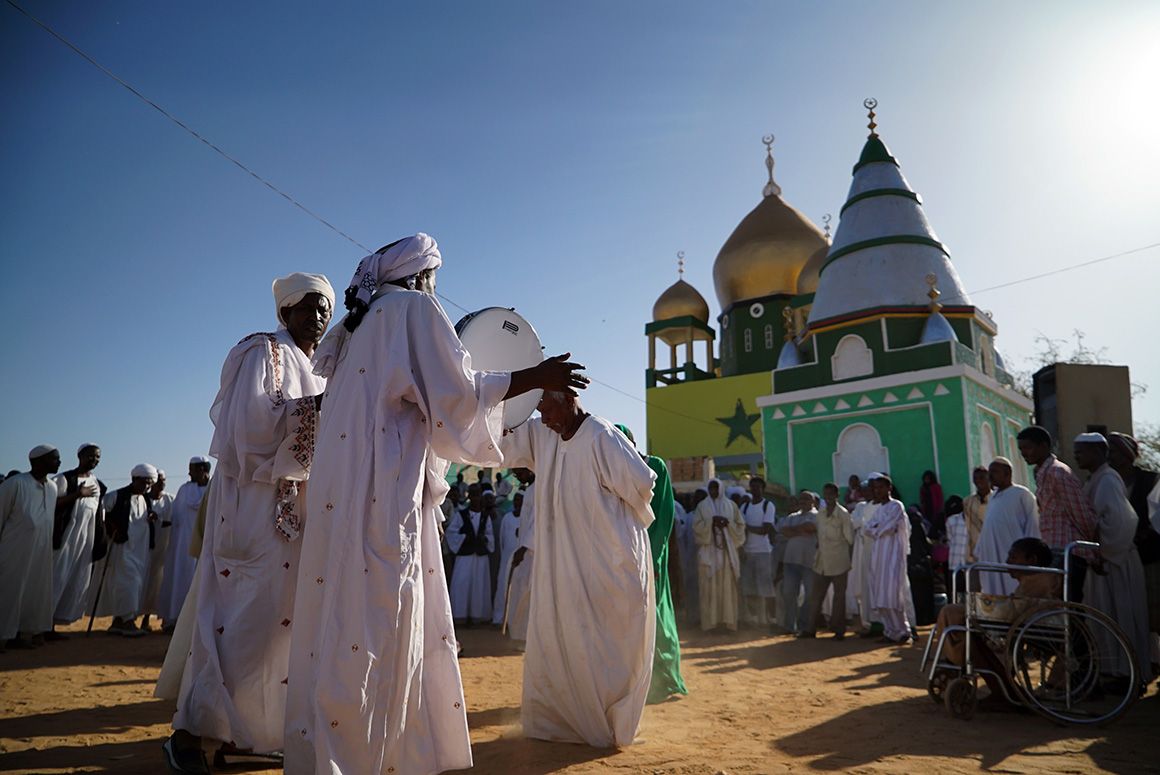
Source: Al Jazeera
Interview with the Wali
At the time of the call to Salat A’duhur - noon prayer- I visited the Sheikh. After the prayer, Al-Sayyed* Ismail Mustafa Al-Bakri greeted me and asked my permission to pray for a few minutes. He sat in front of the mosque's mihrab - designated area for the imam - in a calm, humble stature in his worship, and with a gentle voice, he recited some verses and read the Qur’an. While I watched him, he was full of submission and supplication to god, amplifying the spiritual aura surrounding the place. At that moment, I felt a chill running over my body, yet I witnessed this scene with calmness and comfort.
After he finished, I finally got to sit with Sheikh Ismail and he started talking about Sufism, saying: “Sufism is an education based on reconciliation with oneself, with humility, while one’s ignorance is nothing but an idea or a part of knowledge. Prayers form the Divine’s presence, and while all the Sufi orders are based on applying the Prophet’s Sunnah, they’re different just like said prayers are from one person to another, but they are all built on one goal, which is to focus on one’s self in behavior and in the soul. Sufism helps in achieving self-actualization and comfort, this is a behavioral correction method in accordance with the goal of this very religion”.
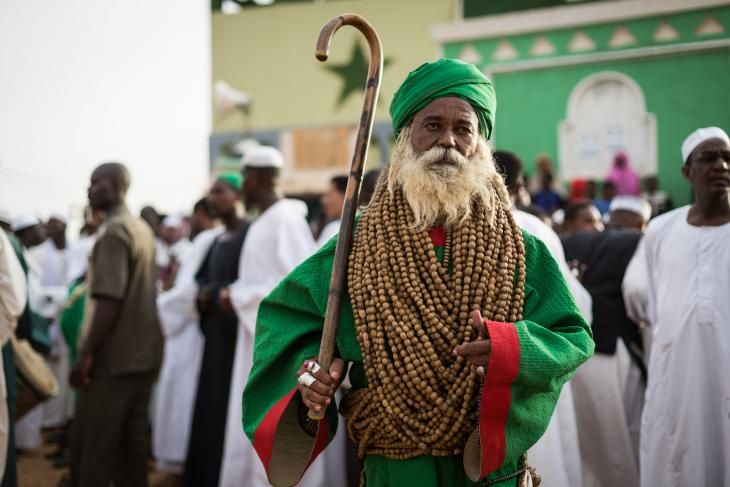
Source: Qantra,de
Whatever is included in Sufism, in terms of the individual’s betterment, is all found in the Qur’an and Prophet's Sunnah. Among its priorities is reforming the individual’s psychological and spiritual elements by self-observing and using the Qur’an to raise one’s self and improve it. Quoting God’s commands in Verse 59:7 the Sheikh said: “Whatever the Messenger gives you, take”. In order to achieve a high status that is manifested by piety and piousness, the original position of Sufism is self-observation, observing God, and the highest of which is seeing God. As the Prophet, PBUH said, “To worship Allah as if you see Him, and if you cannot achieve this state of devotion then you must consider that He is looking at you.”.
The Succession of the Order
One of the mysterious questions many ask is: How is leadership passed down in Sufi orders? How is the succession transferred from a Wali to his successor?
Usually, the succession is inherited by the eldest son. As accustomed by traditions, family responsibilities are usually taken care of by the eldest son, but it may differ in some cases depending on the family needs.
The Sheikh's students
Before meeting al-Sayyed Ismail Mustafa Al-Bakri, I stayed in a guest room attached to the mosque where I had met two of the Sheikh's students. The dialogue went smoothly, with Ahmed* and Abdallah* whose ages were close to one another, 17 and 20 years old. It was a simple conversation on various topics, but their different reasons for following the order were based on desire and inclination, as Ahmed mentioned.

Source: Bibi Eng
The difference was apparent between the two. Ahmed hoped to one day inherit the order and was aware of the religious sense of Sufism because this is how he was brought up in the caliph’s house. He was also aware of the position and responsibility that the Ismaili order befalls on the successor. While Abdullah’s attendance in the order, on the other hand, was caused by his family’s orders. His family resides in the southeast of El Obied, and it was obvious that they forced him to stay in the order. My questions seemed to scare him, so he would only answer with simple words.
“One of my greatest wishes is being close to the caliph and carrying the honor of the caliphate, which takes my soul to the world of worship, Sufism, and a high position," says Ahmed the son of the Walli family and who grew up in the Maseed.
When comparing the two young students, who reached the age of puberty a few years ago, Ahmed showed his desire for the Sufi approach due to the nature of his upbringing. As for Abdullah, his family sent him after a follow-up visit made by the Sheikh and his apprentices to the neighboring villages to ensure his follower’s consistency and continuation to follow the Ismaili order, also to encourage them to keep adhering to the order's values.
Ahmad adds “there has been a longing to be God’s servant since birth. A longing to get closer to God more like bracelets that adorn the soul and not bind it. I sense discomfort when I am far from the dome and the Wali; like sickness and a spiritual fatigue that cannot be cured except near my Sheikh and his worshiping guidelines. This continues until I return to the dome and the mosque of my master Ismail Al-Wali.” On the personal meaning behind Sufism worship and its effects, he explained “praise songs to the prophet and the worshiping of God are considered as buffers to the soul. It relaxes the body as it touches the heart to calm it. Also, it grows a sense of righteous action and worship.”
As for ranks within the Sufism order, Ahmed explained “any Sufi order has obstacles; the more faith and certitude the Caliph sees in you, the more you get promoted. The order is an approach to piety and piousness, God had pledged it as the sheikh will do when you join the order. Whoever breaks his covenant will forfeit himself. The order is taken by pledging allegiance as a responsibility, not to undermine its covenant.” Ahmed also added "I learn and memorize the Awrad of other Sufi orders and learn the differences between them. There is also no significant difference between one’s worship and another except with words and the pure intentions of those reciting it.”
I asked him about the positive influence of the Ismaili Sufi order. He did not hesitate when he said “the most beautiful feeling is during supplication when one would feel calm and comforted, and during the trips and visits the Shiekh takes to the different regions outside the city of El Obeid, and all that precedes and follows, from religious practices to preparatory rituals.”
The conclusion of my interview with Al Sayed* Ismail was about his own perspective as a Sufi. He answered, “as every day comes about, the existence of beings is inevitable, and in any case, we stay grateful.”
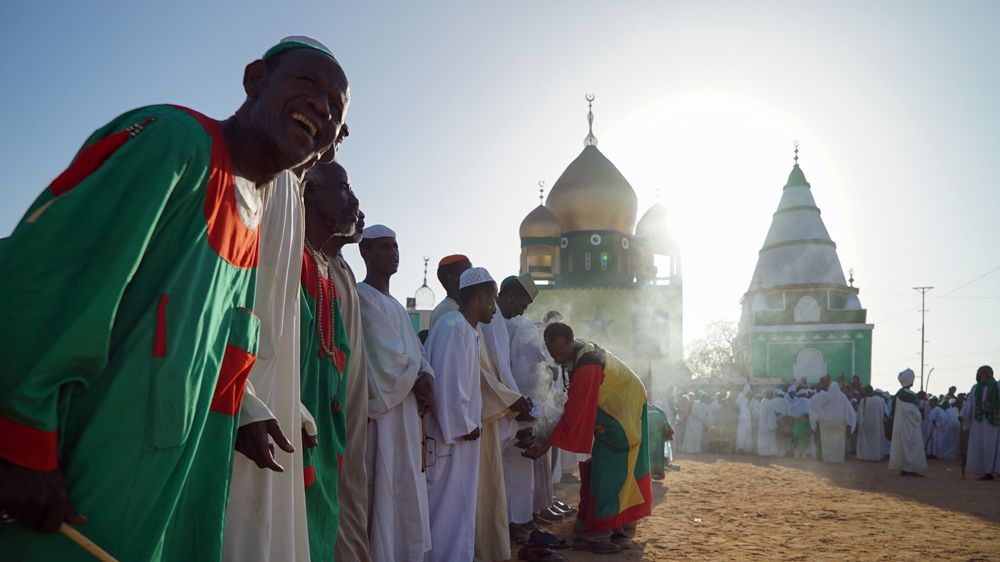
Source: African Media Agency
It is noticeable that the roots of the Ismaili order and its mysticism appear in Ahmad's personality which is linked with his upbringing within Wali Ismail’s family. His acceptance of the order is notable, and the spiritual and religious influence of the family on visits acts of worship. In addition, he expressed the desire to lead the caliphate and its followers, and carry on the representation of the order's leadership, which centered around the personality of the Sheikh or Al-Wali Ismail. In contrast, the conversation raises a question about the reasons that led Abdullah to be in the same place, even though he showed no will or desire to be one of the followers.
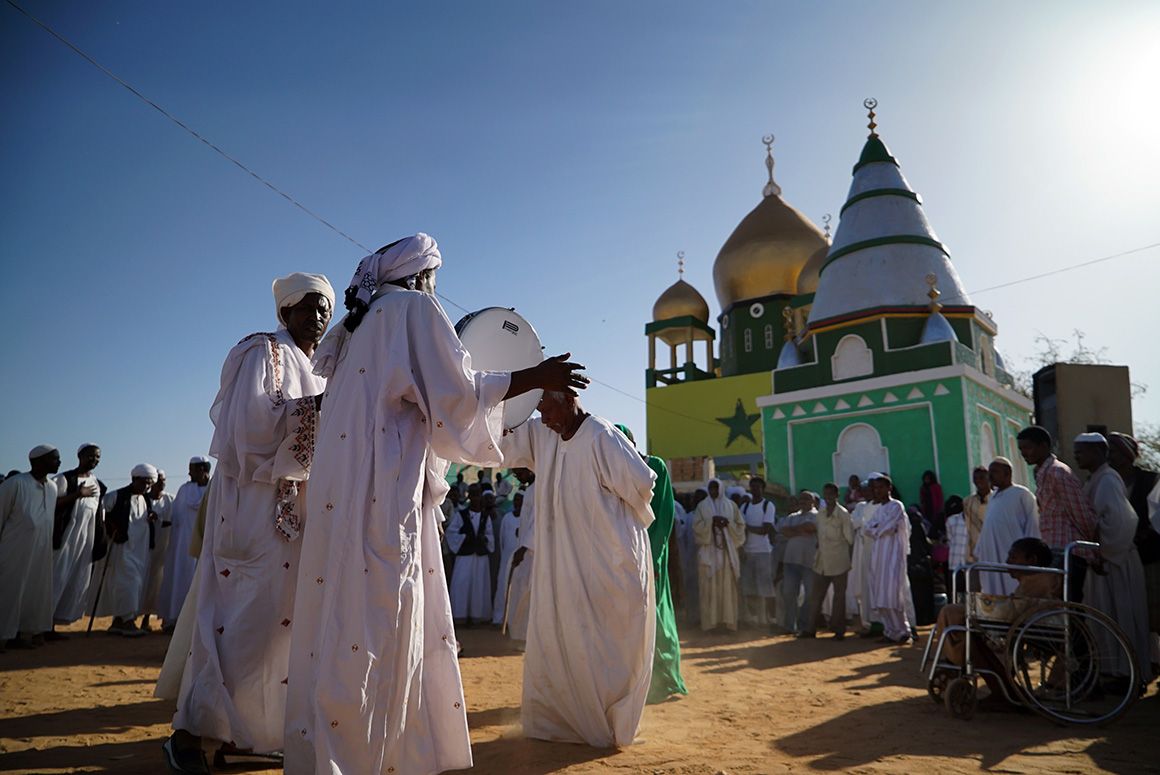
Source: Phil Hatcher Moore
Despite all the different policies and approaches in managing the Sufi orders and their impact on society, Sufi rituals are subject to acceptance, attendance, and participation by the community. Sufism is tolerated and celebrated among the Sudanese people, as integral components of the cultural, religious, and humane aspects of the Sudanese society's coexistence.
*al-sayyed Ismail is a nickname that accompanies the caliph in honor of al-sayyed Ismail Al-Wali, followed by his real name.
*Ahmed, Abdullah: Pseudonyms for students..
- Other sources:
wikipedia.org/wiki/- Ismail_ Alwali
- - The Ismaili order's website: almshareq.com
